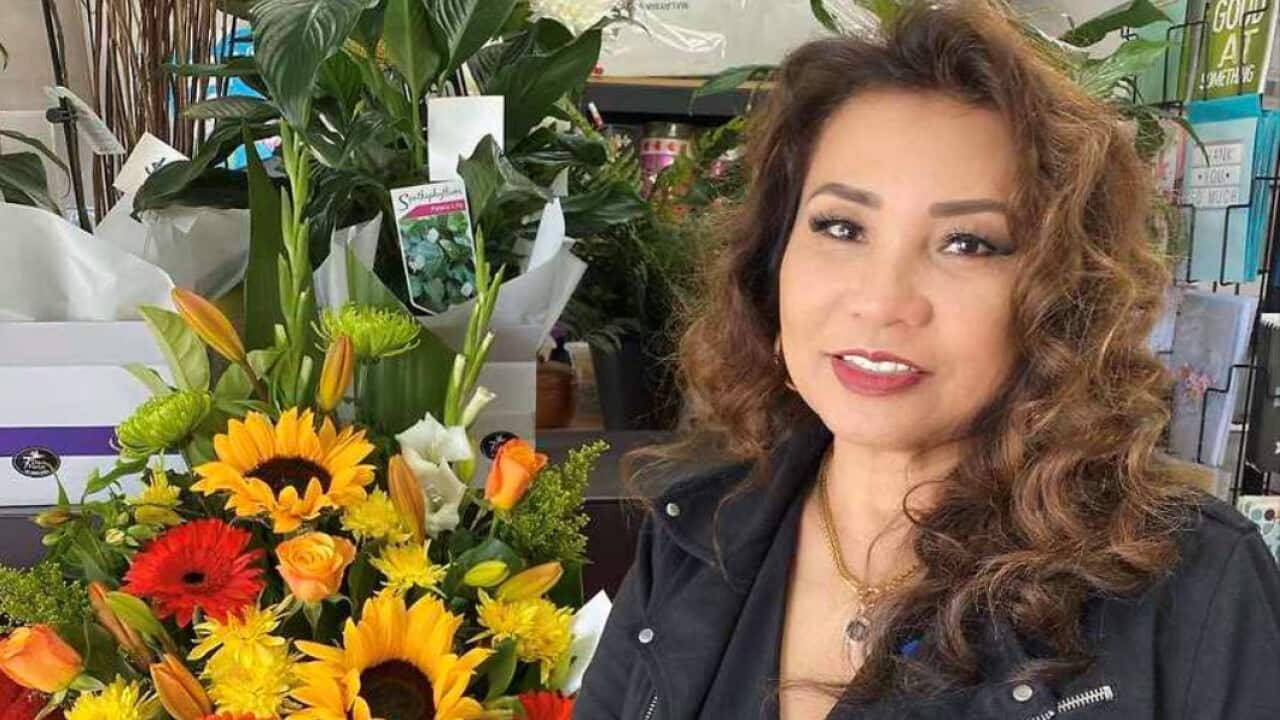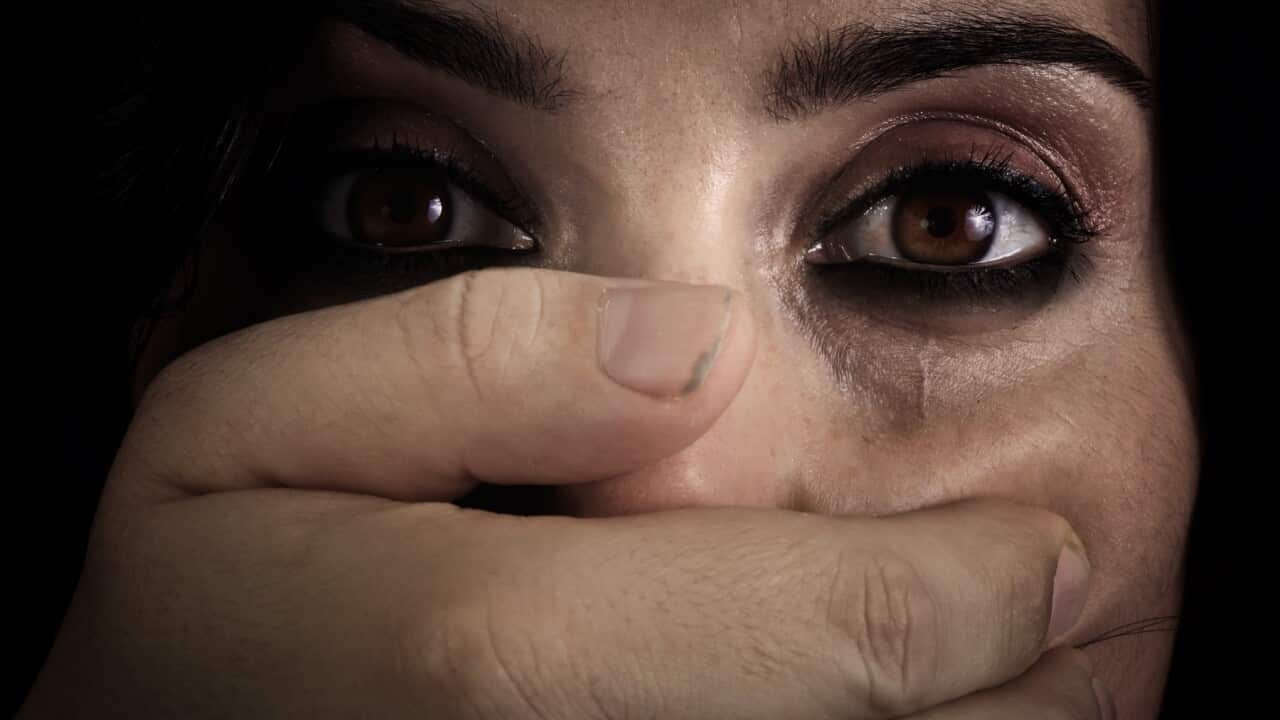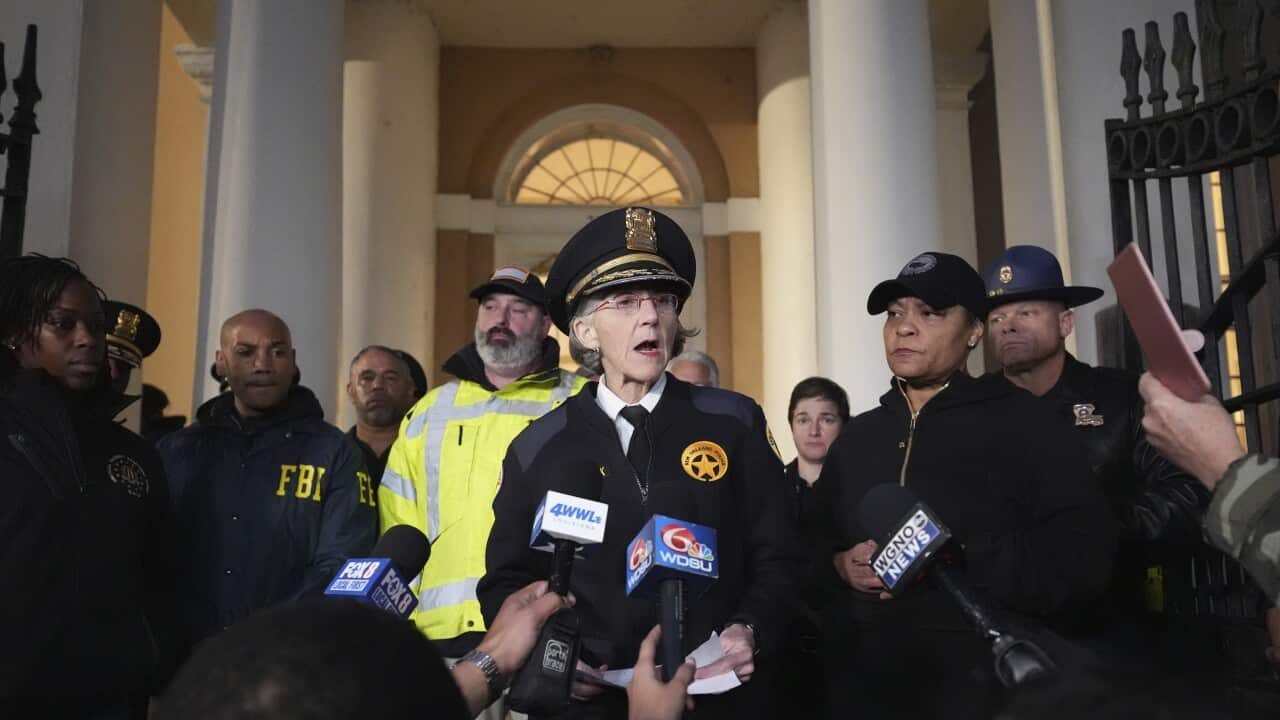Italian
"Flowers are a luxury. Flowers are a essential item. Flowers keep us connected with our soul, they are the smell of the Earth. Flowers smell the same in every language. They are lot more important than what people realise."
Nata nei Paesi Bassi, Anja Seebus è cresciuta in una cultura in cui i fiori erano sempre sulla tavola.
Ma quando ha aperto la sua attività di fiorista a Brisbane nel 1985, è rimasta sorpresa nell'apprendere che non è comune in Australia comprare fiori per la casa e che sono pensati solo per occasioni speciali.
Contrariamente alle prime previsioni secondo la quale gli australiani avrebbero tagliato la spesa per gli articoli discrezionali a causa del deterioramento dell'economia, i fioristi del Queensland hanno segnalato un aumento delle vendite di fiori dall'inizio della pandemia di COVID-19.
La signora Seebus ha detto che, dopo le difficoltà iniziali dovute al lockdown, ha assistito a un enorme cambiamento nel mercato dei fiori locale, poiché più persone acquistano ora regolarmente fiori per se stesse.
"If things are going to be hard then flowers are going to be important. They will keep us connected with what matters - life and loving. We made immediate changes because we lost 50 per cent of our turnover. We upgraded the website and did that in a different way, we engaged more with the community. Now our shop is like a safe space for people. We are doing great."
Nonostante abbia dovuto annullare tutte le prenotazioni per i matrimoni di quest'anno, la fiorista di Brisbane e stilista di eventi Imelda Reyes Kateb ha detto che fortunatamente ha evitato di dover chiudere la sua attività, anche al culmine della pandemia.
La signora Kateb ha invece visto le sue maggiori vendite annuali da quando ha iniziato la sua attività nel 1997.
"By June we had 38 weddings cancelled or postponed. It was supposed to be a very bad financial situation for us but surprisingly, we are one of the 'good news to come out of the pandemic. Why? Because a lot of people are buying flowers for themselves to make them happy. A lot of husbands place orders online because they want to cheer up the whole family.”
Originaria delle Filippine, la signora Kateb si è trasferita a Brisbane nel 1990 con il marito Sam, dopo aver vissuto in Canada e negli Stati Uniti.
Cinque anni dopo hanno investito in un'attività di fiorista dopo una lunga opera di convincimento da parte del marito, che aveva aiutato un amico fioraio a un evento per San Valentino.
La psicologa Lisa Flowers, di Evoke Psychology in Queensland, afferma che le persone associano i fiori a esperienze e celebrazioni positive.
"Stop and smell the roses. See, flowers give us an opportunity to stop and be present in the moment that we are in. There is an association with flowers and positive events and experiences. We experience a connection with other people, and that connectedness is really integral to good wellbeing and good mental health."
La signora Flowers ha sottolineato l'impatto che la pandemia ha avuto sulla salute mentale e ha affermato che le persone si rivolgono naturalmente ai fiori durante i periodi di crisi.
La società di servizi finanziari Rabobank ha stimato che la crisi del COVID-19 è già costata all'industria mondiale della floricoltura almeno 1,5 miliardi di dollari australiani in perdite.
Nei mesi invernali australiani, più dell'80% dei fiori venduti localmente viene importato da Kenya, Colombia, Malesia, Vietnam e Thailandia, nonostante i fiori recisi vengano coltivati tutto l'anno in tutto il paese.
Conseguentemente, c'è una domanda più forte per l'approvvigionamento di fiori.
English
"Flowers are a luxury. Flowers are a essential item. Flowers keep us connected with our soul, they are the smell of the Earth. Flowers smell the same in every language. They are lot more important than what people realise."
Born in the Netherlands, Anja Seebus grew up in a culture in which flowers were always on the table.
But when she opened her floristry business in Brisbane in 1985, she was surprised to learn it was not common in Australia to buy flowers for the house and that they were only thought of for special occasions.
Contrary to early forecasts that Australians would cut spending on discretionary items because of a deteriorating economy, Queensland florists have reported an increase in flower sales since the COVID-19 pandemic started.
Ms Seebus said after the initial challenges of lockdown, she has seen a massive shift in the local flower market as more people now regularly purchase flowers for themselves.
"If things are going to be hard then flowers are going to be important. They will keep us connected with what matters - life and loving. We made immediate changes because we lost 50 per cent of our turnover. We upgraded the website and did that in a different way, we engaged more with the community. Now our shop is like a safe space for people. We are doing great."
Despite having to cancel all her wedding bookings this year, Brisbane florist and events stylist Imelda Reyes Kateb said she luckily avoided having to close her business, even at the height of the pandemic.
Instead, Ms Kateb has seen its biggest annual sales since she began trading in 1997.
"By June we had 38 weddings cancelled or postponed. It was supposed to be a very bad financial situation for us but surprisingly, we are one of the 'good news to come out of the pandemic. Why? Because a lot of people are buying flowers for themselves to make them happy. A lot of husbands place orders online because they want to cheer up the whole family.”
Originally from the Philippines, Mrs Kateb moved to Brisbane in 1990 with her husband Sam, after living in Canada and the United States.
Five years later they invested in a floristry business after much convincing from her husband, who had helped a florist friend at a Valentine’s Day event.
Psychologist Lisa Flowers of Evoke Psychology in Queensland says people associate flowers with positive experiences and celebrations.
"Stop and smell the roses. See, flowers give us an opportunity to stop and be present in the moment that we are in. There is an association with flowers and positive events and experiences. We experience a connection with other people, and that connectedness is really integral to good wellbeing and good mental health."
Ms Flowers highlighted the impact the pandemic has had on mental health and says people naturally turn to flowers during times of crisis.
Financial services company Rabobank has estimated the COVID-19 crisis has already cost the global floriculture industry at least $1.5 billion in losses.
In the Australian winter months, more than 80 per cent of flowers sold locally are reportedly imported from Kenya, Colombia, Malaysia, Vietnam and Thailand, despite cut flowers being grown all year round across the country.
As a result, there is stronger demand for sourcing flowers.
Report by Celeste Macintosh




